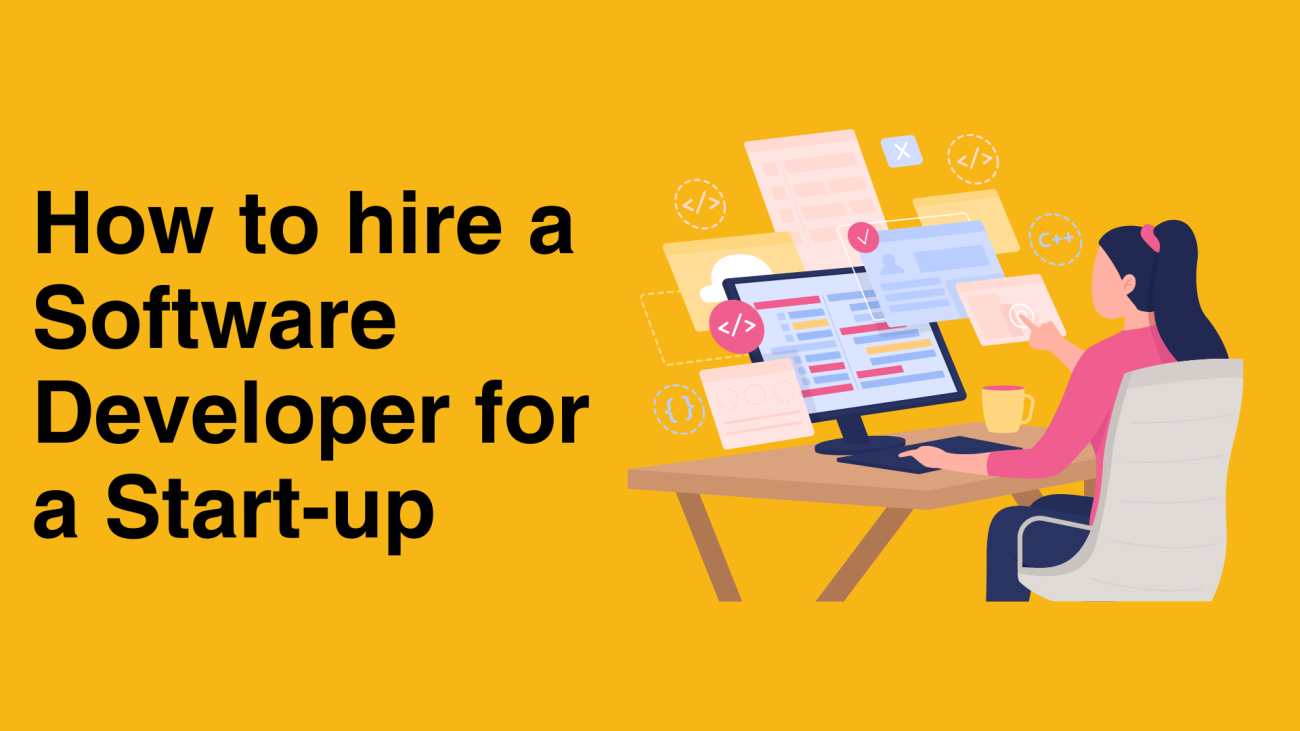How to hire a Software Developer for a Start-up
Building new products and applications are exciting and hold the promise of a bright future. But it is an uphill battle. Even with the most appealing, consumer-centric idea that addresses the current need of the people, it will only work when you have the right team to support it.
Having said that, it is hard to find the kind of people you want for a start-up as you might have comparably less to offer a brilliant coder or a developer; as they might get picked up by bigger organizations with better offers.
Knowing how to find a programmer for a startup is even more challenging if you belong to a non-tech background.
What do you even look for?
Here is a complete guide for non-technical entrepreneurs who need to hire technical wizards. Sit back, read, and make notes to prepare before you call someone for your next interview.
-
Figure out what you want to build

You need to first define what you want to build before hiring a developer.
Are you building a website or an application? Is it for web users or mobile users? Or both?
For a solution or an application that will run both on mobile and web, you need a developer who knows about hybrid development technologies. Like React Native, Xamarin, Flutter and Ionic.
You also have to consider whether you are building your solution for iOS or Android. You cannot expect an android developer to build an extensive and native iOS application and vice-versa.
-
Check out the competition
Like any other product development, studying the market is a critical step in deciding on your product and its features. You need to clearly define and understand your product and its needs before you can hire the right developer for it.
Here are some questions that can help you think through this process:
- What problem are you solving?
- Who is your ideal customer?
- What are their current pain-points?
- What are the current solutions available to them? (provided by your competitors)
- What are you going to do differently? What is your value proposition?
- What features do you want to build?
The answers to these questions will also help you define the skill sets you might be looking for in a potential candidate.
-
Define the user journey
Before you even meet the potential candidates, you should have a blueprint of the user journey for yourself. How does your solution or application operate? What is the functional sequence? Can you draft or do a mock of the UI/UX you expect as an outcome?
And create a robust detailed list of features you want to include in your first version. There might be some which are ubiquitous features like signup/registration, profile creation, notifications, share options, etc.
The user journey and feature list will enable the developer to decide on the platform that they want to use and the cost and time it can take to create it.
-
Figuring out who you need
One must understand that there are many different types of developers out there. Software development is not a one-person job and you might need to find an array of developers with different strengths to match your needs.
Some developers work with the back-end and others work with the front end, some on iOS, others on Android, some on mobile usage, and others on web. You need to be clear about what you need.
Here are some job roles you can familiarize yourself with:
- Architect - Architects usually work on finding and building complex solutions based on the business needs and goals. They should have knowledge of the major cloud providers and CI/CD. They are adept at dealing with back-end and front-end frameworks.
- Backend Developer - They manage the server-side of the development. They are responsible for designing, implementing, and writing logical code that runs the solution. They should use technologies like PHP, Java, and Python for programming and MongoDB, SQL, SQL Server, Redis, and MySQL for databases.
- Frontend Developer - They develop the client-side of the solution. They work on the visual aspects and features. They work on the user journey and define how the end-users will engage with the final solution. A front-end developer must have sound knowledge of HTML, CSS, Angular JS, React, and Ionic.
- Full-stack Developer - A full-stack developer has the expertise to work on both frontend and backend technologies. While full-stack developers can work with many different kinds of technologies, these are the common ones they should be familiar with: React JS, Node JS, Angular, Django, Flask, jQuery, and Ruby on Rails.
- Mobile Developer - Mobile developers are the ones that work on mobile-based solutions, be it on windows, iOS or Android. A mobile app developer’s core responsibility is to build native applications with platform-specific features and functionalities. They usually use Objective C, Swift, Java.
Now that you have a fair idea of what you need, the next step is to find the right match for your needs.
If the process of finding the right person for this job seems cumbersome to you, we can help. Though we are in the process of bolstering our talent pool for technical roles, we thrive in finding the right fit for business roles like Business Development, Inside Sales and Digital Marketing.
FlexiBees has a large pool of 40K+ experienced and qualified women. We have a deep vetting process that matches the right candidate to your exact business needs. We will do all the grunt work for you and provide you with only the best three screened candidates for interviewing. This can help you save time and energy, and you are likely to find a suitable candidate easily.
Click here to read some of the candidates we successfully placed in the recent past.
And if you are convinced and want to explore the option of hiring flexible candidates via FlexiBees, click here to drop us a line.

